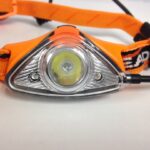Are you an outdoors enthusiast or hunter looking for the best satellite phone?
With the range of GPS and sat phones on offer, selecting one that suits your needs can be challenging. For hunting in secluded regions of the US or simply staying connected while on-the-go, a dependable satellite phone is indispensable.
In this article we’ll explore why satellite phones are important when hunting, look at some of the most popular brands available today, discuss how GPS works and provide tips for choosing the best satellite phone for your next hunt.
What is a Satellite Phone?
A satellite phone is a mobile device that utilizes orbiting satellites for communication, allowing users to make and receive calls from anywhere in the world even when cellular service is not available. It uses satellites orbiting Earth instead of cell towers on the ground for communication.
A satellite phone offers a variety of advantages, such as dependable access in remote areas, the ability to contact emergency services and GPS monitoring features.
Satellite phones work by sending signals up to orbiting satellites which then bounce them back down to other satellites or directly to their destination on the ground. The time taken for a signal to reach its goal can differ depending on the distance it has to traverse.
Different models of satellite phones exist, such as Iridium Satellite Phones, Inmarsat Satellite Phones and Globalstar Satellite Phones; each having its own set of features and coverage area to consider before making a purchase.
Each type has different features and coverage areas so it’s important to do research into each one before making a purchase decision.
Satellite phones are an excellent choice for hunters and outdoor enthusiasts who need reliable communication in remote areas. Popular satellite phone brands offer a range of features, making it easy to find the right device for your needs.
Popular Satellite Phone Brands
Iridium satellite phones are one of the most popular brands among hunters and outdoors enthusiasts. These phones use a network of 66 satellites to provide coverage in even the most remote areas, making them an ideal choice for hunting trips.
Iridium’s voice quality is also excellent, so you can make clear calls from virtually anywhere on Earth. The power supply is noteworthy, offering up to 10 hrs of conversation and 40 hrs on standby.
Inmarsat satellite phones offer another great option for hunters looking to stay connected while out in the field. Inmarsat offers a global coverage of 15 geostationary satellites, even in areas where other networks may not be dependable or accessible. In addition to voice calling, these phones also support text messaging and data services like email access and web browsing at speeds up to 464 kbps depending on your location and plan type.
Globalstar satellite phones, although boasting fewer satellites than Iridium (24 compared to 66 in orbit around Earth’s equator region), still provide an adequate service for much of North America as well as parts of Europe, Asia Pacific, South America and Africa
This makes them a sensible choice for those who don’t require complete global coverage but want something more reliable than cell phone networks can offer in remote areas or during catastrophes when traditional towers are out of commission or swamped with high demand.
Popular satellite phone brands offer reliable communication and navigation capabilities, making them a great choice for hunters who need to stay connected in remote locations. Having knowledge of the significance of these gadgets can aid you in selecting the most suitable satellite phone for your requirements.
Why Are Satellite Phones Important for Hunting?
Satellite phones are an important tool for hunters and outdoorsmen. They allow you to stay connected in remote locations, provide emergency assistance if needed, and give you access to navigation and tracking capabilities.
Staying connected in remote locations is a key benefit of having a satellite phone. Hunters often venture into areas with no cell service or internet connection. With a satellite phone, they can still make calls or send text messages to family members back home or even other hunting buddies out on the trail. This helps ensure that everyone is safe and accounted for during their trip.
In addition, having access to a satellite phone can be essential in emergency situations while out hunting or camping. If something goes wrong such as getting lost or injured, it’s reassuring knowing that help is just one call away thanks to your trusty satellite device. You never know when an unexpected situation might arise so it’s always best to be prepared by carrying a reliable form of communication like this wherever you go outdoors.
Finally, many modern-day satellite phones come equipped with GPS navigation and tracking capabilities which can prove invaluable while out on the hunt.
Whether it’s finding your way around unfamiliar terrain or keeping tabs on your group’s whereabouts throughout the day; these features will definitely come in handy more times than not. Knowing where everyone is at all times allows you peace of mind that all parties involved are safe from harm’s way during any outdoor excursion, making them an absolute must-have item for any hunter worth his salt.
Satellite phones are essential for hunters, as they provide a reliable way to stay connected in remote locations and can be used during emergency situations. Additionally, GPS technology provides an efficient means of navigation and tracking capabilities that further enhance the hunting experience. In this article we will discuss how GPS works to understand its accuracy and reliability.
How Does GPS Work?
Global Positioning System (GPS) uses signals from satellites to provide location and time information through satellite-based navigation. GPS works by having at least 24 satellites orbiting the Earth at an altitude of around 20,000 km. The receiver picks up the signals sent by satellites in orbit, allowing it to calculate its location using travel time and triangulation between multiple sources. The receiver then calculates its position using the signal’s travel time and triangulation between three or more satellites.
GPS Basics:
GPS technology has been used for decades in military applications as well as civilian ones such as navigation systems for cars and boats, tracking wildlife movements, surveying land boundaries and even providing weather forecasts. To use GPS effectively requires understanding how it works and what factors can affect accuracy.
GPS precision and dependability rely on various components, such as the strength of the signal (which can be impacted by atmospheric conditions), how many satellites are visible (at least four are required) and geometry (the distance between each satellite). Generally speaking, most consumer grade devices have an accuracy within 3 meters but this may vary depending on conditions mentioned above. Before investing in a GPS device for hunting remote locations, it’s wise to check with your provider to ensure adequate coverage.
In addition to accuracy concerns, there are also reliability issues associated with using a GPS device while hunting – namely battery life since most devices require a constant power source in order to operate properly over long periods of time without interruption. This means carrying extra batteries or investing in solar powered units which could be expensive but might prove worth it depending on how often you plan on going out into the field without access to conventional sources of electricity such as generators or car batteries etc.
GPS can be an incredibly useful resource for hunters, and knowing how to employ it effectively can enhance your hunting experience. Having the right satellite phone for your hunting trips is key to making sure you can access GPS data in remote areas.
Tips for Choosing the Best Satellite Phone for Hunting
When deciding on the optimal satellite phone for hunting, it is essential to weigh up a few key elements.
Firstly, hunters should assess their individual needs and determine what type of coverage they require. For example, if you’re planning on hunting in remote locations with limited cellular service, then an Iridium or Inmarsat satellite phone may be your best option as these provide global coverage.
On the other hand, if you’re mainly looking for navigation and tracking capabilities while out in the field, then a Garmin InReach Mini or Explorer+ device could be just what you need.
It’s also important to research different brands and models before making a purchase decision. Each brand offers its own unique features and benefits so make sure to read up on customer reviews and compare prices before settling on one model over another. Additionally, many satellite phones come with monthly subscription plans which can add up quickly so take this into account when budgeting for your new device.
Finally, it’s essential to check coverage areas before purchasing any type of satellite phone as not all devices offer global access or even nationwide access depending on where you live or hunt regularly. Be sure to double-check the specifications of each model against your location prior to committing financially – after all there’s no point investing in a fancy piece of technology only for it not work due lack of signal strength.
FAQs in Relation to Best Satellite Phone
What is the best satellite phone on the market?
The best satellite phone on the market is the Iridium 9575 Extreme. The Iridium 9575 Extreme is the ultimate satellite phone, boasting global coverage, a long-lasting battery life, and a rugged design that can withstand extreme conditions and shocks; plus an SOS button for emergency situations with crystal clear voice quality due to its noise cancellation technology. It also has an SOS button for emergency situations, allowing users to send their location in case of distress.
Additionally, it provides crystal clear voice quality with its advanced noise cancellation technology so conversations are always loud and clear even in noisy environments. All these features make this device one of the most reliable options available today for hunters who need dependable communication while out in remote areas.
Is Iridium better than Globalstar?
Iridium is generally considered to be a better option than Globalstar when it comes to satellite communication. Iridium offers superior coverage, reliability, and call quality compared to Globalstar. It also has lower latency and faster data speeds for sending messages or making calls from remote locations around the world. Additionally, Iridium’s network is larger with more satellites in orbit providing greater redundancy if one of them fails. Ultimately, this makes Iridium a much more reliable choice over Globalstar for hunters and outdoors enthusiasts looking for dependable communications on their adventures.
Which is better Iridium or Thuraya?
It depends on the specific application. Iridium is a satellite network that offers global coverage, whereas Thuraya operates in two regions: Europe and Asia/Africa. Both networks offer reliable communication services for hunters, sportsman, outdoors enthusiasts and rural areas of the western United States. However, Iridium has better overall coverage and lower latency than Thuraya which makes it more suitable for voice calls or data transmission over long distances.
Ultimately, it comes down to what your needs are – if you need global coverage then Iridium is likely to be the best choice; however if you only require regional service then Thuraya may be more cost-effective.
What is the downside to a satellite phone?
The downside to a satellite phone is that they can be expensive and require specialized plans, as well as potentially limited coverage areas. Battery life is typically shorter than standard cellular phones, necessitating more frequent charging when in remote areas.
Additionally, due to their reliance on satellites for communication, the signal strength can vary depending on where you are located. Finally, some models may not support text messaging or data services like web browsing or emailing.
Conclusion
In conclusion, choosing the best satellite phone for hunting can be a daunting task. With a multitude of options in terms of brands and features, comprehending the mechanics of GPS as well as why satellite phones are essential for remote regions is critical when it comes to selecting an ideal satphone.
By researching popular models, considering your budget and needs as a hunter, understanding what type of coverage is necessary for your area, and weighing pros & cons of each model – you’ll have all the tools needed to make an informed decision about which satphone will work best for you.



